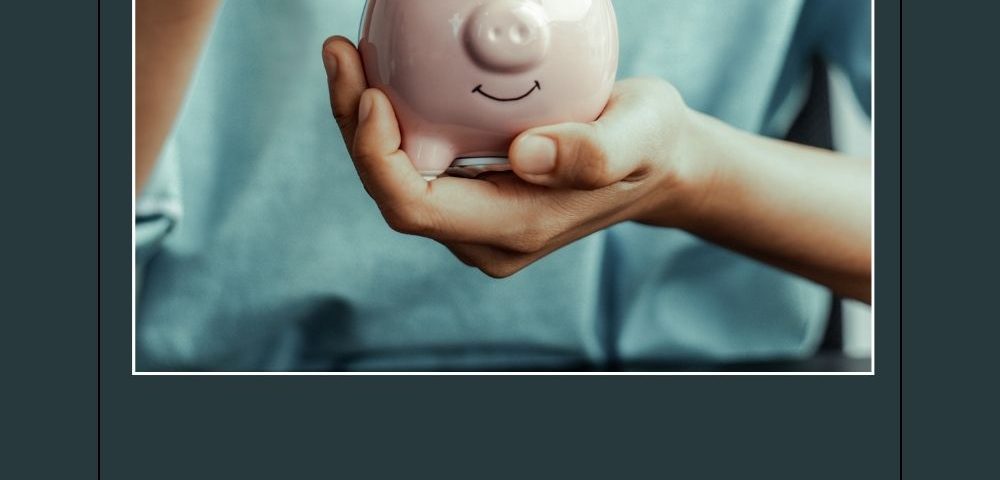Written by Bernie Carr
During these days of high inflation, it may seem difficult to set aside any savings. Saving money as an apartment dweller can be challenging, but not impossible. Here are some tips that might help you reduce your expenses and achieve your financial goals:
Buy multi-use items
Choose furniture and appliances that can serve multiple purposes, such as a sofa bed, a storage ottoman, or a pressure cooker. This way, you can save space and money by avoiding unnecessary purchases.
I also like to use products that have multiple household uses such as vinegar, baking soda, petroleum jelly, and many others. They help you save money as you can avoid buying multiple products.
De-clutter your space
Buy less stuff: the less clutter you have, the easier it is to keep your apartment clean and organized. Plus, you can save money by avoiding impulse buys and unnecessary subscriptions. Whenever my kitchen pantry or refrigerator is disorganized, I often forget that I have already bought certain ingredients and end up buying it again.
Try to adopt a minimalist lifestyle and only buy what you need and love.
Rent or borrow items
If you need something for a short-term or one-time use, such as a tool, a book, or a dress, consider renting or borrowing it from a friend or a service instead of buying it. You can save money and avoid accumulating more stuff that you don’t need.
Go digital
I didn’t think I’d even switch to digital books but I discovered it is very convenient. You can even borrow digital books from the public library. Switch to online services and platforms that can help you save money and space. For example, you can use streaming services instead of cable TV, e-books instead of physical books, online banking instead of paper statements, and cloud storage instead of external hard drives.
Save energy
One of the biggest expenses for apartment dwellers is the utility bill. Lower your energy consumption with the following ideas:
- Using LED bulbs
- Unplug appliances when not in use
- Adjust your thermostat to an optimal temperature
- Use cold water for laundry
- Take shorter showers.
Cook meals at home
Cooking your own meals can help you save money and eat healthier. You can plan your meals ahead of time, shop for groceries in bulk, use coupons and discounts, and cook in large batches that you can freeze or refrigerate for later. You can also bring your own lunch to work or school instead of eating out.
Start a pantry stockpile
If your space allows, stock up on essential pantry items that you use frequently-buy them when they are on sale and replenish as you use them up.
Don’t forget renter’s insurance
Renter’s insurance can protect you from financial losses in case of theft, fire, water damage, or other disasters that may affect your apartment or belongings. It can also cover your liability if someone gets injured in your apartment or if you accidentally damage someone else’s property. Renter’s insurance is usually affordable and can save you from paying out of pocket for repairs or replacements.
Use apartment amenities
Many apartment complexes offer amenities to their tenants such as free gift-wrapping, use of a recreation hall, on-site gym and monthly activities such as ice cream socials, holiday parties, etc. Why not take advantage of these perks, and get to know your neighbors as well.
Get out of debt
Getting out of debt and saving money can be challenging, but not impossible. Here are some tips that might help you achieve your financial goals.
1. Stop borrowing money. The first and most important step in getting out of debt is to stop adding more debt. This means no more using credit cards, taking out loans, or borrowing money from anyone. You need to break the cycle of debt and live within your means.
2. Create a budget and track your spending. A budget is a plan that helps you allocate your income to your expenses and savings. You need to know how much money you have coming in and going out every month, and where it is going. You can use a spreadsheet, an app, or a notebook to track your spending and see where you can cut costs and save more.
3. Prioritize paying off your debts. There are different strategies to pay off your debts faster, such as the debt snowball or the debt avalanche. The debt snowball method involves paying off the smallest debt first, while making minimum payments on the rest. The debt avalanche method involves paying off the highest-interest debt first, while making minimum payments on the rest. Both methods can help you save money on interest and motivate you to keep going.
4. Consider debt consolidation. Debt consolidation is a way of combining multiple debts into one with a lower interest rate and a single monthly payment. You can use a personal loan or a balance transfer credit card to consolidate your debts, but make sure you compare the fees, terms, and interest rates before you do so. Debt consolidation can help you simplify your payments and save money on interest, but it does not reduce your total debt amount.
5. Generate extra income. If you want to get out of debt faster and save more money, you need to increase your income. You can do this by selling unwanted items, getting a side hustle, asking for a raise, or finding a better-paying job. Any extra money you make should go toward paying off your debts or boosting your savings.
6. Save for emergencies. One of the reasons people get into debt is because they don’t have enough savings for unexpected expenses, such as medical bills, car repairs, or job loss. To avoid this situation, you should aim to save at least three to six months’ worth of living expenses in an emergency fund. This way, you can cover any emergencies without relying on credit cards or loans. This brings us to our next topic.
Build an emergency cash fund
Building an emergency cash fund is a smart way to prepare for unexpected expenses or financial emergencies. An emergency fund is a cash reserve that you set aside for unplanned bills or payments that are not part of your routine monthly expenses and spending.
The amount you need in your emergency fund depends on your situation, but a common rule of thumb is to have enough to cover three to six months of essential living expenses21. However, even a small amount can provide some financial security, so don’t let the goal discourage you from starting1.
Here are some ways to build your emergency fund:
1. Make a budget and see where you can start saving more money. Cut back on unnecessary spending and prioritize your needs over your wants2.
2. Determine your emergency fund goal and track your progress. You can use a savings calculator to estimate how long it will take you to reach your target amount2.
3. Set up a direct deposit or automatic transfer from your checking account to your savings account. This way, you can save without thinking about it and avoid the temptation to spend the money23.
4. Gradually increase your savings as you get more comfortable with your budget. You can also save more when you get a raise, a bonus, or a tax refund23.
5. Save unexpected income, such as cash gifts, tips, or refunds. Instead of spending it on something else, put it in your emergency fund and watch it grow faster24.
6. Keep saving after reaching your goal. You never know when you might need more money for an emergency, so don’t stop saving once you hit your target. You can also use the extra money for other savings goals, such as retirement or vacation2.
7. Use a bank account bonus to jumpstart your savings. Some banks offer incentives for opening a new account or meeting certain requirements. You can take advantage of these offers and use the bonus money to boost your emergency fund2.
Where should I keep my emergency fund?
You should keep your emergency fund in a separate account from your regular checking or savings account. This way, you can avoid mixing up your money and spending it on something else. You should also look for an account that is easy to access, safe, and earns some interest.
Some options include:
A high-yield savings account. This is a type of savings account that offers a higher interest rate than a regular savings account. It can help you grow your money faster and keep up with inflation. However, some high-yield savings accounts may have fees, minimum balance requirements, or withdrawal limits that you need to be aware of13.
A money market account. This is another type of savings account that offers a higher interest rate than a regular savings account. It also allows you to write checks or use a debit card for withdrawals. However, like high-yield savings accounts, money market accounts may have fees, minimum balance requirements, or withdrawal limits that you need to be aware of13.
A certificate of deposit (CD). This is a type of investment account that locks up your money for a fixed period of time (such as six months or one year) and pays you a fixed interest rate. It can offer a higher return than a savings account, but it also has less flexibility and liquidity. If you withdraw your money before the maturity date, you may have to pay a penalty fee13.
When should I use my emergency fund?
You should use your emergency fund only for real emergencies, such as:
- Car repairs
- Home repairs
- Medical bills
- Loss of income
- Other unexpected expenses that are urgent and necessary
You should not use your emergency fund for: Nonessential purchases, regular expenses and bills, debt payments, investments or vacations.
If you use your emergency fund for something else, you may not have enough money when you really need it. You may also lose the motivation to save and replenish your fund.
Before dipping into your emergency fund, ask yourself these questions:
Is this expense unexpected?
Is this expense urgent?
Is this expense necessary?
If the answer is yes to all three questions, then it’s probably an emergency and you can use your emergency fund. If not, then try to find another way to pay for it or postpone it until you have enough money.
Remember, an emergency fund is not a luxury but a necessity. It can help you avoid getting into debt.
I hope these tips will help you save money, avoid debt and save money while living in an apartment.
What money saving tips work for you? Please feel free to share your experience in the comments.
Today’s societal climate not supportive of prepping. With your help, we can keep bringing you content that is often suppressed. Help keep Apartment Prepper alive.
Join me on Patreon for ad-free content.
Or Help out via Paypal
About the author
Bernie Carr is the founder of Apartment Prepper. She has written several books including the best-selling Prepper’s Pocket Guide, Jake and Miller’s Big Adventure, The Penny-Pinching Prepper and How to Prepare for Most Emergencies on a $50 a Month Budget. Bernie’s latest e-book, FRUGAL DIY has just been released on Amazon. Her work appears in sites such as the Allstate Blog and Clark.com, as well as print magazines such as Backwoods Survival Guide and Prepper Survival Guide. She has been featured in national publications such as Fox Business and Popular Mechanics. Learn more about Bernie here.
FB: https://www.facebook.com/apartmentprepper
Instagram: https://www.instagram.com/apartmentpreppers/
Twitter: https://twitter.com/AptPrepper
YouTube: https://www.youtube.com/channel/UC7vOtdbo-wiBeBxD6puCr1Q
Pinterest: https://www.pinterest.com/aptprepper/





This is an excellent article. But in addition to the advice about what THINGS to invest in, I would add SKILLS. Knowing how to cook a meal, how to repair your car, how to paint the ceiling, how to deliver a baby . . . these are all useful (and money-saving) skills. Stuff that money alone cannot buy. Just a thought.
Hi Ron,
Learning skills so you can do these things yourself is priceless. Good addition to the article. Thanks for the comment!
Good points.
One thing I did when I first moved into the apartment I live in now.is I made sure that I’m able to pay all of my bill’s by the 5th of every month.whats left is used to buy what I need.i also turn things on, only when they need to be on.like the TV, lights and ac.i turn them off when their not needed. A vacuum sealer helps at stocking up on frozen foods
Hi Jim, Thanks for sharing your tips! I appreciate the comment.